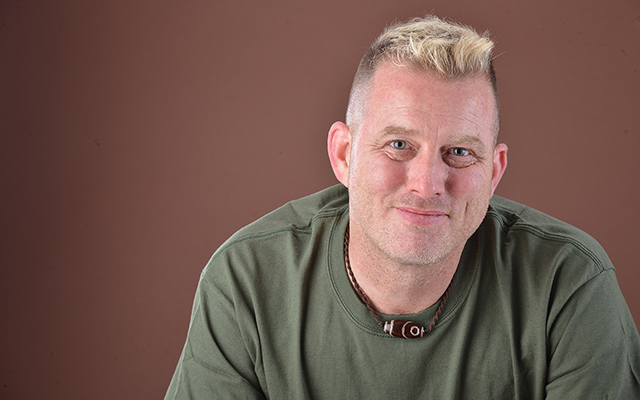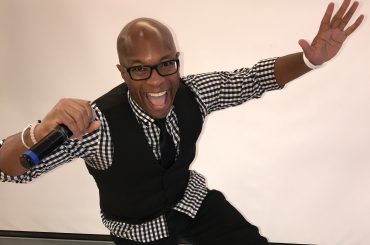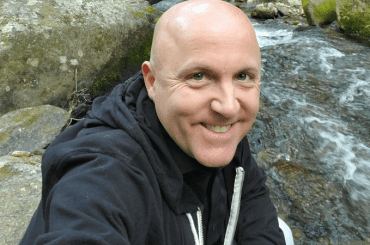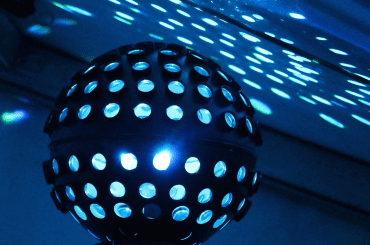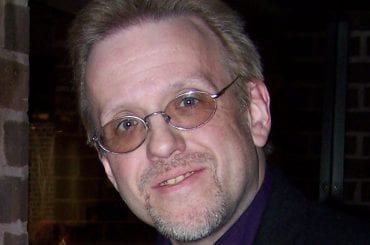Milwaukee – They always say you can’t put a price on your good health. But Brian Redd has a better sense for that saying than most people—certainly most DJs.
In 2011, Redd was a 20-year DJ vet, owned his own DJ business, for which he had developed a vast social-media network, and YouTube channel, and then something went terribly wrong.
He had a stroke. He was 39.
At first, he didn’t really have a fear for himself, just for his daughter and the rest of his family. “I had accepted it was very possible that things could go very bad, but I was afraid for how they were going to deal with it,” he says. “When those are the types of things you are up against, a business or money or material possessions are the last things on your mind.”
When he went into ICU, he was a legally blind paraplegic. Five weeks later, he was lucky enough to go home with 20/20 vision and a heavy limp. He was resigned to the idea that “recovery” wasn’t the operative word—“adapting” was.
“No matter what a person’s physical situation is, they’ll have a much better quality of life if they can work out how to at least be as functional as possible,” says Redd, who had compromised ability in his right arm and leg as a result of the stroke.
While in inpatient rehab, bath time consisted of people wheeling him into a shower stall and spraying him down. When he got home, and wanted a bath really bad, his girlfriend helped him do it a few times. It took about 45 minutes start to finish.
Then Redd started to ask myself: If he had to do this himself, how would he do it?
“I thought real hard about it and one night when there was no one around to tell me ‘no,’ I did it,” he says. “It took me an hour and a half, but I did it. The next night, I did it in 45 minutes. The night after that, under half an hour.”
About a month later, Redd was driving. The following spring, he was DJing on the road again, by himself, with a specially designed “Micro System.”
“Nobody told me how to do any of this stuff,” he says. “In fact, most people said none of it was even possible.”
The driving force? “It was my close friends and family,” he says. “It’s important for me to be an asset to them rather than a liability.”
Redd’s YouTube and social-media audience was watching as well. “After something like this, you kind of have this realization that you can either be the one everyone feels sorry for, or you can be something else.”
He decided to be something else. Redd credits his DJ-industry friends, Brian Dowdle at ADJ, Mike Ryan at Frankenstand, and John Krupa at FBT Italian Speaker Imports for helping put together a more streamlined DJ system. The FBT ProMaxX 10A—a 900-watt RMS, 10-inch, 2-way system that weighs less than 25 pounds per unit—has been a particular help in the P.A. department.
“The list really goes on and on,” he says. “People like these stepped up and offered their knowledge and support when I first got the idea to build this compact mobile-DJ system I could handle on my own… even if at first, they thought I was nuts!”
Redd has always been a little “nuts,” like most DJs. The infatuation with the DJ lifestyle began in the early ’80s, when he was 13. He was standing in line at the local skate rink when the owner walked by and asked him if he wanted a job. The regular Friday-night DJ has called in sick. He did the gig.
Then in high school, a mobile-DJ company offered him a job. That’s where he learned how to DJ for wedding receptions. About a year later, he was spinning in bars and lounges.
“It’s funny because I don’t think I chose to be a DJ,” he says. “It kind of chose me. I wasn’t asking for any of these jobs. Word just kind of got around that this is what I did, so I went with it.”
Redd didn’t think of DJing as a career option until he was in his early 20s. People who knew him from his school days kept calling and asking him to DJ their weddings.
“I’d try to explain that I had moved onto clubs,” he says, “and wasn’t working for mobile DJ companies anymore.”
Redd credits his mom for stepping in and suggesting that he start his own DJ company. “She gave me a Visa card with a $2,000 credit limit to build my first mobile system,” he says. “The cool part was that I was able to pay off the entire card in a matter of weeks with security deposits alone.”
He says starting the business was relatively pain-free. “I think I had it pretty good,” he says. “There was plenty of work to be had.”
The one challenge that he cites is building a mobile-DJ system (in the early ’90s) that would fit in his two-door 1978 Cutlass.
“One thing I had going for me was that I had worked for a few different mobile DJ companies, and each one of them had their own version of a mobile system,” he says. “I took all of that, decided what I liked, didn’t like, and got creative with the rest of it.”
We asked Redd if he often thinks back on his health experience, a health “event” by any definition. “I think of it,” he says, “in the way that there are a whole lot of good people out there and it’s really all about the attitude.”
One thing the stroke has changed is the way he thinks of the future. “Who knows?” he replies when we ask him where he sees his business in five years. “I mean, five years ago, who would have thought I’d be talking about being a disabled DJ? Our industry changes so fast, we never know what’s new around the corner. It’s an exciting time to be a DJ!”


